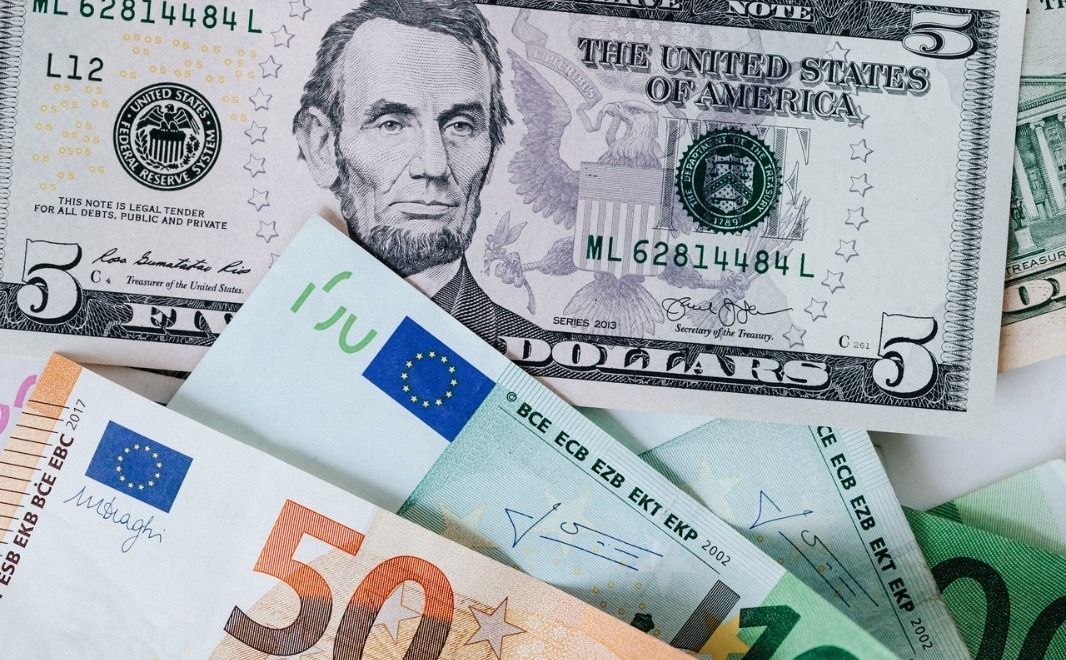The euro has fallen to a low unseen since December 2002, and is currently trading at $1.02, with potentially widespread ramifications for the European fiscal union.
As rising energy prices disproportionately affect Europe, the deteriorating economic outlook has pushed investors to the ultra-liquid US currency as a traditional safe haven, although analysts have observed the demand for the dollar is also supported by factors other than an aversion to risk.
Shahab Jalinoos, global head of macro trading strategy at Credit Suisse, told Reuters that the United States’ position as a net energy exporter and decisive action by the Federal Reserve to raise interest rates have also driven the dollar’s rally.
Germany, widely acknowledged as the motor of the European economy, with a long-running trade surplus that often serves to paper over weaknesses in other national economies, has registered its first trade deficit since 1991 as the steep increase in energy prices registers as a sharp rise in import values.
The energy shock is related to the Russian invasion of Ukraine and the European Union’s sanctions on the country, which is a major supplier of gas and oil to the trading bloc.
Meanwhile, the European Central Bank will encounter more problems than the Fed in its efforts to raise interest rates, with the structural weaknesses that caused the European sovereign debt crisis still in play. Popular pushback against attempts to engineer an economic slowdown on the back of a decade of low growth also makes the situation tricky for the ECB’s governing body.
Impacts of a weak euro
The dollar remains the global currency par excellence, and almost half of all goods imported into the eurozone are invoice in the US currency. The euro is used to pay for less than 40 per cent.
For example, oil and gas are typically paid for in dollars, backed by US force, and as their prices have soared in recent months, the amount of euros needed to be exchanged for dollars to pay for the essential fuels has increased.
Speaking to Barron’s, professor at the Paris Institute of Political Studies Isabelle Mejean said: “Imported goods become less competitive, compete against each other and therefore become more expensive,” fueling inflation and eroding households’ purchasing power.
Different eurozone countries will see varying effects of the weak euro. Import-oriented businesses and nations will suffer, but countries and sectors exporting outside the euro area, like those involved in the automobile, chemicals, and luxury goods markets, will benefit as their prices become more competitive.
Countries with a strong tourism sector, like Malta, can also expect to see some benefit, as holidays in the eurozone become more affordable for Americans and nationals of other countries whose currencies are pegged to the dollar, including many Middle Eastern ones like Bahrain, Jordan, Lebanon, Oman, Qatar, Saudi Arabia and the United Arab Emirates.
Clyde Caruana dismisses Iran war energy price concerns: ‘Malta has plenty of space to manoeuvre’
The escalating conflict between Israel and Iran has sent shockwaves through global energy markets
Poundland bought for £1 in rescue deal as thousands of UK jobs on the line
Poundland has more than 800 stores around the UK and employs some 16,000 people
Corinthia expands Beverly Hills footprint with third property acquisition and new US partnership
The partnership secured rights to acquire a third prime property; an office block adjacent to the Maison and Mosaic Hotels





